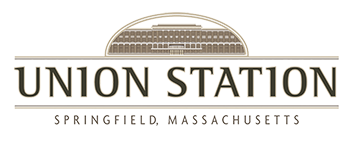MASSLIVE (March 24, 2021) — The Pioneer Valley Transit Authority has received $487,000 in state grants to try out a Northampton-Holyoke-Springfield Express bus route, which it said can save nearly an hour off some travel times.
The pilot program offers hourly service between Northampton and the Holyoke Mall, hourly service between Northampton and Union Station in Springfield, and half-hourly service between the Holyoke Mall and Union Station. It’s all from 7 a.m. to 8 p.m. weekdays and Saturdays, and it will all be done with electric buses, according to the state Department of Transportation.
The new service will begin July 1, according to PVTA spokeswoman Brandy Pelletier.
PVTA services the three stops already, Pelletier said Wednesday, but there is no direct route between them.
For example, existing service between Northampton’s transit hub outside the Academy of Music and Springfield Union Station requires a transfer at the Holyoke Transportation Center. And the trip can take an hour and a half versus an auto-drive time of 28 minutes, Pelletier said. The new express bus service can do it in 35 minutes.
The trip from Northampton to the Holyoke Mall takes 48 minutes due to the alignment and number of local stops, Pelletier said. The auto-drive time is 16 minutes. The new express service will operate hourly between Northampton and the Holyoke Mall, with 20 minutes of travel time.
The PVTA has an existing express service between the Holyoke Mall and Springfield taking 18 minutes. New express half-hourly service between the Holyoke Mall and Union Station will take Interstate 91 and shave travel time to 15 minutes.
The MassDOT announced $3.5 million in grants across the state this week. This is the third round of grants for regional transit authorities to develop innovative services, for a new total of $7.5 million.
“Over $10 million in funding has been awarded to support regional transit authorities in their continued efforts to increase ridership, develop innovative and sustainable service models and practices, and create accessible and reliable transportation connections across the Commonwealth,” Gov. Charlie Baker said in a statement. “The funding helps RTAs meet their identified goals of improving customer service, develop pilot programs and micro transit opportunities to further extend service locations, and to provide more efficient transportation options that are specific to each regional area.”


